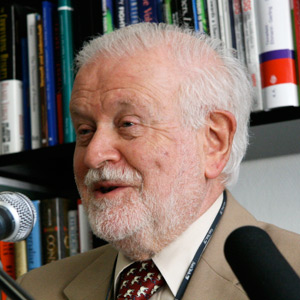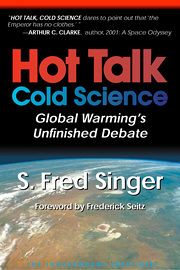Vice-president hopeful Paul D. Ryan is the polar opposite to former VP Al Gore. Instead of promoting fears, the candidate is a pretty solid skeptic when it comes to catastrophic anthropogenic global warming (CAGW). Romney is obviously comfortable with that stance and is using Ryan to reposition himself on the issue of global warming and energy.
If Romney-Ryan are elected, the global warming problems may suddenly disappear. As a start, the new Congress will likely pass legislation that specifically instructs the EPA not to control any of the greenhouse gases that have a global distribution—and, like CO2, are certainly not pollution in any normal, ordinary sense.
In an otherwise critical NYT op-ed (Aug 13), Reagan’s former WH budget chief David Stockman calls Ryan “the most articulate and intellectually imposing Republican of the moment.” (That was exactly my opinion of the David Stockman I knew some 30 years ago.) It speaks well for Romney that he would select a VP who may overshadow him in many areas. By contrast, Obama’s selection of Biden suggests intellectual insecurity.
Paul Ryan’s position on climate science
Ryan has accused climate scientists of “intentionally misleading the public on climate change.” (See full article.) This may be true for perhaps a dozen or so—and we know who they are; their names appear prominently in the Climategate e-mails. But many hundreds of others are simply willing to go along and collect research grants from the government, having convinced themselves somehow that their contributions may moderate the climate and “save the Earth.”
Here’s what Ryan wrote three years ago in The Journal-Times (Racine, WI):
To the detriment of the American people, environmental issues have fallen victim to the hyper-politicization of science. ... [P]ublished e-mail exchanges from the University of East Anglia’s Climatic Research Unit (CRU) from leading climatologists make clear efforts to use statistical tricks to distort their findings and intentionally mislead the public on the issue of climate change. The CRU e-mail scandal [“Climategate”] reveals a perversion of the scientific method, where data were manipulated to support a predetermined conclusion. The e-mail scandal has not only forced the resignation of a number of discredited scientists, but it also marks a major step back on the need to preserve the integrity of the scientific community. While interests on both sides of the issue will debate the relevance of the manipulated or otherwise omitted data, these revelations undermine confidence in the scientific data driving the climate change debates.
Ryan’s other climate and energy accomplishments:
- voted to eliminate EPA Limits on Greenhouse Gases. (Roll Call 249, 4/7/11.)
Rep. Upton, R-MI, stated: This legislation will remove the biggest regulatory threat to the American economy. This is a threat imposed not by Congress, but entirely by the Obama EPA. This administration wanted a cap-and-trade system to regulate greenhouse gases, but Congress said no. So beginning in early 2009, EPA began putting together a house of cards to regulate emissions of carbon dioxide. The agency began with automobiles, declaring that their emissions endangered public health. That single endangerment finding has since been used by EPA to launch an unparalleled onslaught. The result, two years later, is a series of regulations that will ultimately affect every citizen, every industry, really every aspect of our economy and way of life.
- voted to block the USDA from implementing its climate raindance. (Roll Call 448, 6/16/11.)
- voted to eliminate the assistant to the president for energy and climate change, the special envoy for climate change (Todd Stern), and the special adviser for green jobs, enterprise and innovation. (Roll Call 87, 2/17/11.)
- voted to eliminate ARPA-E. (Roll Call 55, 2/17/11.)
- voted to eliminate the ban on incandescent light bulbs. (Roll Call 563, 7/12/11.)
- voted for the construction and operation of the Keystone XL pipeline. (Roll Call 650, 7/26/11.)
In voting against the 2009 Cap & Trade bill, Ryan wrote:
The President’s energy policies have been characterized by punitive regulations on economically competitive sources of energy, coupled with reckless spending on uncompetitive alternatives. The controversial “cap and trade” bill that President Obama tried and failed to pass through Congress in 2009, would have established an elaborate bureaucratic structure for taxing and rationing conventional energy sources. But instead of accepting this verdict on its preferred policy, the administration continued to pursue de facto cap and trade approaches by supporting the EPA’s unilateral plan to impose emissions restrictions on American businesses. The push by the Obama administration to pursue energy and environmental policy through heavy-handed regulations circumvents accountability to voters and leaves decisions in the hands of a bureaucratic infrastructure. Unnecessary regulations tie the hands of small businesses and create a hostile and uncertain business environment, discouraging job growth. [Source: The Path to Prosperity, by Paul Ryan, p. 25 , Apr 5, 2012 ]
- He voted against auto-maker bailout that abused process to force new fuel standards:
In some areas, such as fuel-economy standards, the administration has abused a rulemaking process in order to ensure compliance from private-sector parties. For instance, bailing out General Motors and Chrysler as it was telling them to accept government’s more costly fuel-economy standards.
In other areas, such as the debate over the new Keystone pipeline, the administration has simply blocked action that would result in more jobs and lower energy prices for Americans. President Obama has chosen to delay a decision on this common-sense job creator until after the next election, despite years of vetting and an exhaustion of inadequate excuses.
The result: Since the start of the administration, gas prices have doubled; regulations have extracted almost $2 trillion per year from the economy, including $281 billion for environmental regulations imposed on small businesses. (Source: The Path to Prosperity by Paul Ryan, p. 26 , Apr 5, 2012)
- He voted YES on developing all American-made energy, including nuclear:
Ultimately, the best energy policy is one that encourages robust competition and innovation to ensure the American people an affordable and stable supply of energy. This budget would roll back federal intervention and expensive corporate welfare funding directed to favored industries. (Source: The Path to Prosperity by Paul Ryan, p. 30 , Apr 2, 2012)
- Voted YES on opening Outer Continental Shelf to oil drilling
- Voted NO on tax credits for renewable electricity.
Science backup is available
What Ryan lacks is a credible scientific backup for his climate statements. But these can be easily supplied, at any desired level, depending on the attention span of the listeners. We can provide a 30-second level, a two-minute level, and a 10-minute level.
On the 30-second level, it is sufficient to state that the available climate observations disagree with the predictions of climate models. Even after 25 years of intensive work, there has been no validation of these models and no reason to trust them to predict the future.
On the two-minute level, one would show that most recent observations do not even show significant global warming. True, there has been a increase in temperature over the past 250 years as the Earth recovers from the Little Ice Age, but the warming reported from surface weather stations since about 1980 is not matched by observations of atmospheric temperatures, ocean temperatures, or so-called proxies (temperatures derived from tree rings, lake sediments, stalagmites, corals, ice cores, etc.).
On the 10-minute level, one would discuss the evidence for natural fluctuations of the climate as observed in the Earth’s history—and in particular the fluctuations observed since the end of the last major ice age approximately 12,000 years ago. There’s evidence for fluctuations produced by atmosphere-ocean oscillations and accumulating evidence for the subtle influences of the Sun on the climate.
We look forward with great anticipation to climate-energy issues playing a major role in the coming pre-election debates.









